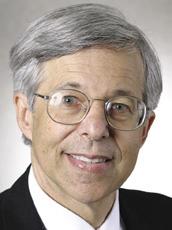 (In Part 1, I discussed how a plaintiff’s attorney discovered the identity of medical blogger Flea, and used it during his medical malpractice trial.)
(In Part 1, I discussed how a plaintiff’s attorney discovered the identity of medical blogger Flea, and used it during his medical malpractice trial.)
When this trial ended in settlement many people wanted to know: Was the existence of the blog and the Boston Globe’s description of a “Perry Mason” moment a factor in the settlement?
The answer I come up with, after discussing limited facets of the case with plaintiff’s attorney Elizabeth Mulvey, is that while I doubt the blog or the Perry Mason moment made a big difference, the reality is that only the jurors would ever know. And they didn’t hear all the evidence.
While Mulvey wouldn’t discuss the facts of the case — the agreement is confidential and I doubt either the parents of the boy that died or Flea want to talk about it — I did learn that there had been five witnesses before the settlement, including Flea and two experts.
The trial started with Flea on the stand. It is a common tactic for the defendant to be called first by the plaintiff’s attorney. There was then a break in his testimony after Mulvey had done her direct exam so that the experts could testify, with Flea to return later. (This is not unusual, as scheduling expert witnesses is always a problem unless they are retired.) The blog outing occurred on the fifth day of trial. In addition to more testimony from Flea, there were still likely to be a couple more witnesses, with the defense team having another expert ready that could have testified if the trial continued.
Thus, even if a synopsis of the facts were available by someone, they would likely have been disputed. That’s why we have juries to look in the eyes of the witnesses and consider all of the available evidence placed before them. It is difficult for a summary by a newspaper or blogger to fully capture two weeks of trial for an in-depth analysis.
(As to the timing of the settlement, it is not at all unusual to have cases settle mid-trial, after the attorneys can evaluate the evidence. In fact, I’ve had four medical malpractice cases settle while the jury was deliberating on the verdict.)
And about that “Perry Mason moment?” Mulvey told me that while it was certainly interesting, it hardly amounted to the melodramatic rendering of it by the Boston Globe. Trial attorneys, you see, routinely confront witnesses with prior inconsistent statements. Sometimes it means something to jurors. And other times they shrug it off.
Just a few weeks ago Anne Reed wrote on this very subject at Deliberations, in The Overrated Prior Inconsistent Statement. From that posting, which has many links to original sources:
But are jurors really going to throw out a witness’s testimony because of one inconsistency, or even one lie? Think about it. Do you have a co-worker who has lied to you but with whom you still manage to work well? A family member who has lied to you whom you still love? Perhaps you yourself might have told a lie once, long ago? For most of us, the idea of falsus in uno is too simple to be useful in real life. [The latin phrase means that someone who lies about one thing is likely to lie about another, and a jury is therefore permitted to disregard all the testimony of the witness — ET]
Jurors are often forgiving and practical when a witness lies. That’s the conclusion of an empirical study by Jones Day lawyer Richard Stuhan, and trial consultants Melissa Gomez and Daniel Wolfe of TrialGraphix, Inc, collecting data from over 800 mock jurors in “over a dozen states.” Stuhan, Gomez, and Wolfe authored an extensive post about their study (and its limitations) at the Drug and Device Law blog, and plan to publish it in full in the April 2007 edition of DRI’s For the Defense magazine.
And so, while the confrontation with the blog may have been presented in the Boston Globe as exceptional, it appears that the only exceptional thing was where the prior statement came from.
This article was blasted across the front page a full two weeks after the trial was over. So the guy who wrote it, and the editors that placed it above the fold on the first page, weren’t even there.
Tomorrow, my final bit on the trial of Flea. But it really isn’t about him. It’s about the Boston Globe.
 Not all suits are good ones, as we’ve seen with some of the claims of Judge Robert Bork (as well as the $67M pants story, now on trial), and here is another fine example:
Not all suits are good ones, as we’ve seen with some of the claims of Judge Robert Bork (as well as the $67M pants story, now on trial), and here is another fine example:



